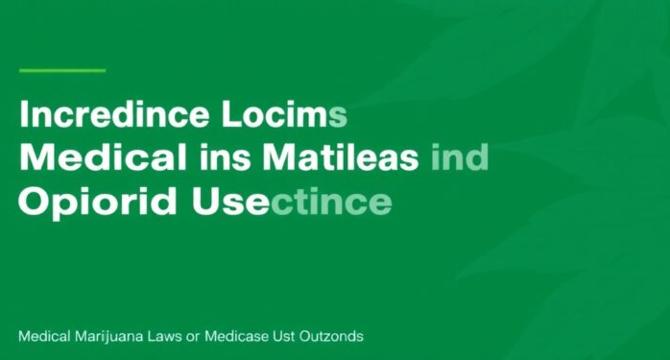Bioengineer
1M
22

Image Credit: Bioengineer
Research Reveals Impact of Medical Marijuana Laws on Opioid Use Outcomes
- Researchers at Columbia University Mailman School of Public Health conducted a study investigating how cannabis legislation impacts opioid misuse and opioid use disorder among adults in the US.
- The study was based on data from the National Survey on Drug Use and Health (NSDUH) gathered between 2015 and 2019.
- The study found that there was no overall reduction in opioid outcomes across the general population after the adoption of medical and recreational cannabis laws.
- Medical cannabis laws do seem to correlate with a decrease in the odds of opioid misuse among individuals who consume cannabis, however, recreational cannabis laws do not.
- The researchers note that reductions in certain measures of opioid misuse were more pronounced among cannabis users in states that had adopted medical cannabis laws.
- The study highlights the need for further research into the impact of cannabis legalization on substance use behaviors and the need for effective public health strategies.
- As more states advance their cannabis laws, findings such as those presented in this study will be instrumental in guiding both policy formation and public health initiatives aimed at reducing substance misuse and improving health outcomes.
- The research calls upon policymakers and researchers alike to remain vigilant in tracking substance use trends in a rapidly changing legislative environment.
- Ultimately, the findings offer a foundation for future inquiries into how medical and recreational cannabis usage influences broader patterns of drug use disorders.
- The study opens the door to further investigation, promising closer scrutiny on how various cannabis laws shape health outcomes and what that means for the future progression of drug policy in the United States.
Read Full Article
1 Like
For uninterrupted reading, download the app